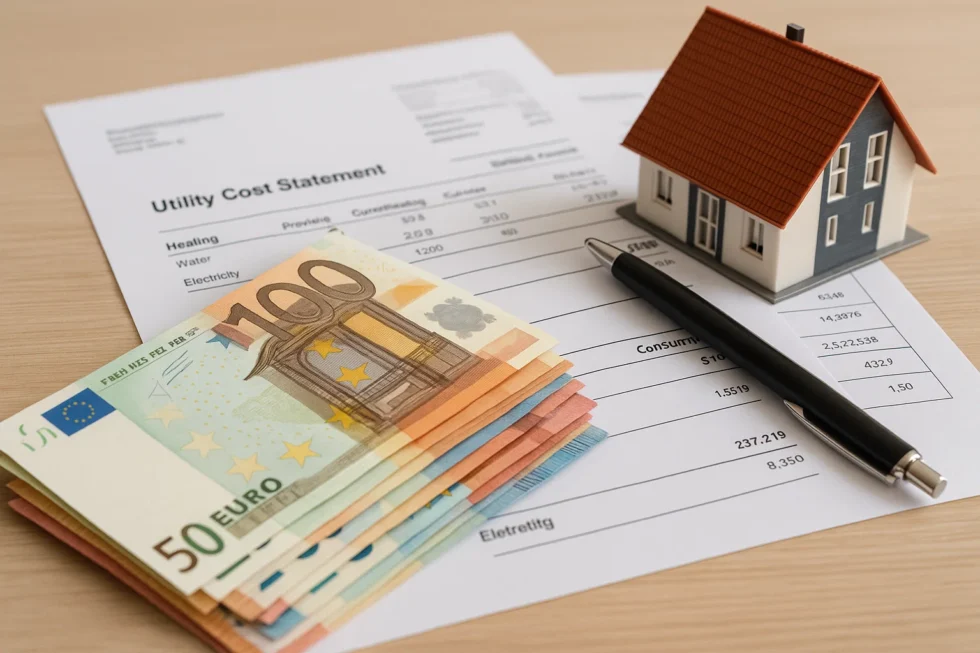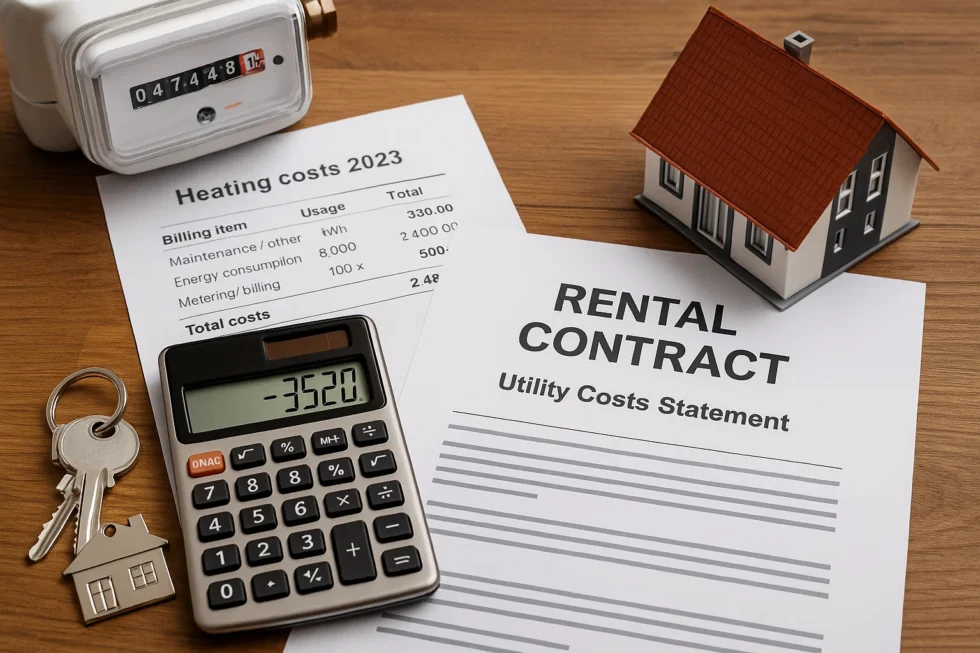Why landlords in Germany risk losing rent income without a proper utility cost statement

FRANKFURT, October 17, 2025 — Germany’s famed reputation for order and precision is facing an unexpected credibility crisis — in its rental system. As Germania Business reports, new nationwide data from the audit platform Mineko show that 93 percent of all Nebenkostenabrechnungen — utility cost statements — issued in 2025 contain errors, based on the review of almost 80,000 cases. Tenants were overcharged by an average of €515 per year, while total operating costs for a typical 78 m² apartment reached €3,576, up 3.7 percent from the previous year.
Despite a legal reform banning the inclusion of cable fees since mid-2024, many landlords continue to list them, contributing to mounting tenant complaints. With energy prices rising by about 10 percent in 2025 and over 21 million rental households nationwide, experts warn that billions of euros are at stake. What was once routine accounting has now become a nationwide stress test for transparency, compliance, and trust in Germany’s housing market, G.Business reports.
Why the Nebenkostenabrechnung matters for landlords
For landlords, an accurate Nebenkostenabrechnung is more than bureaucracy — it’s a legal obligation under § 556 of the German Civil Code (BGB). If submitted late or incorrectly, landlords risk losing their right to claim additional payments. Equally important, a transparent statement builds tenant confidence and prevents long legal disputes.
Key reasons accuracy is essential:
- Legal compliance: Late or incorrect billing can void claims for additional payments.
- Trust: Clear documentation fosters long-term, stable tenant relationships.
- Financial protection: Prevents costly disputes and court procedures.
- Operational insight: A detailed statement helps identify inefficiencies and reduce expenses.
- Reputation: Fair billing is increasingly linked to a landlord’s credibility in Germany’s competitive housing market.
The scale of the problem: statistics and common mistakes
Audits by consumer watchdogs reveal that eight to nine out of ten bills show significant inaccuracies. These errors typically involve incorrect cost allocation, missing receipts, or late submission. In Berlin, Frankfurt, and Munich, tenants most frequently dispute heating costs — often inflated by flat-rate estimates or unverified service invoices.
| Error Type | Description | Impact |
|---|---|---|
| Late submission | Delivered more than 12 months after the billing period | Landlord loses legal right to payment |
| Including repair costs | Major repairs or renovations added illegally | Refund demands from tenants |
| Missing receipts | No proof for listed costs | Loss of credibility, legal exposure |
| Wrong allocation key | Costs divided by size instead of consumption | Disputed bills, tenant complaints |
| Vague entries | “Miscellaneous” with no details | Transparency violations |
According to Objego’s 2024 study, the average incorrect charge was €192 per tenant, rising to €390 in urban districts. More than 51% of audited statements contained unlisted or contractually unapproved expense items.

How to calculate and present costs correctly
A transparent cost breakdown is both a safeguard and a legal necessity. Each cost category must be documented, justified, and allocated according to verified data — not estimates. German tenancy law stipulates that every billed amount must be traceable to an actual invoice.
Step-by-step for landlords:
- Collect all original invoices for heating, water, cleaning, and waste disposal.
- Separate “warm” and “cold” costs: energy-related vs. operational expenses.
- Apply correct allocation keys: for example, heating costs must be distributed 50–70% by consumption, the rest by floor area.
- Check contract clauses: only costs specified in the rental agreement may be passed on.
- Submit within 12 months: late statements forfeit any claim to back payments.
- Explain every item: provide tenants with clear, itemised lists and access to receipts.
- Keep records for at least three years: in case of legal review or tenant inquiry.
Proper documentation doesn’t only protect landlords — it also demonstrates accountability and professionalism in a market increasingly scrutinised for transparency.
Avoiding costly disputes: practical tips
- Use certified templates: ensure compliance with the latest legal standards.
- Rely on digital tools: software such as Objego or HausPerfekt automates cost allocation.
- Review tariffs annually: update energy and service costs to prevent outdated billing.
- Keep open communication: explain complex charges proactively to tenants.
- Engage mediators early: if conflicts arise, resolve them before they escalate to court.
In 2024 alone, German courts handled over 15,000 tenant–landlord cases related to utility billing disputes — most of which could have been avoided through clearer documentation.
The Nebenkostenabrechnung is far more than paperwork — it’s a mirror of Germany’s rental culture and legal precision. Inaccuracies can trigger financial losses, lawsuits, and tenant mistrust, while a well-prepared statement signals integrity and competence. For landlords, accuracy is not a courtesy — it’s protection. By embracing digital templates, verifying every euro, and respecting the 12-month deadline, property owners can turn a legal risk into an instrument of professionalism — and help restore transparency to one of Germany’s most complex housing systems.